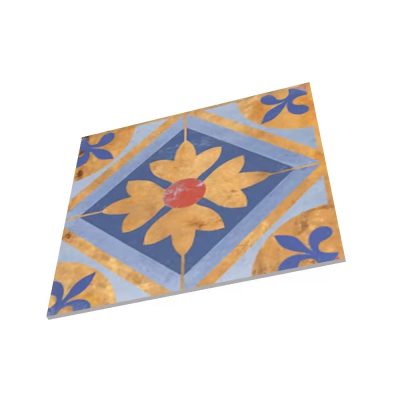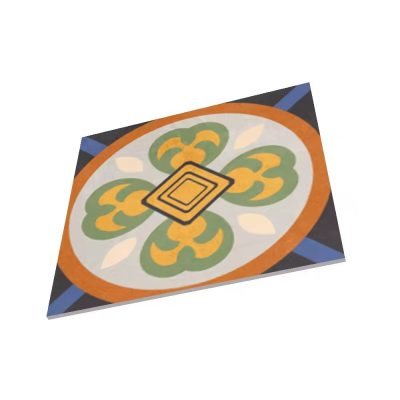Behind the timeless beauty and durability of polished porcelain floor tiles lies a complex process of manufacturing and installation that requires precision, expertise, and attention to detail. From the selection of raw materials to the final polishing stage, every step in the production journey contributes to the exceptional quality and performance of these tiles.
Raw Materials and Formulation: Polished porcelain floor tiles are primarily composed of kaolin clay, silica, and other natural minerals, which are carefully selected and blended to create a homogeneous mixture. The quality and consistency of raw materials play a crucial role in determining the strength, durability, and aesthetic properties of the finished tiles.
Pressing and Firing: Once the raw materials are mixed, the resulting mixture is pressed into molds under high pressure to form individual tiles. The tiles are then fired in kilns at temperatures exceeding 1200°C, causing the clay particles to fuse together and form a dense, durable ceramic body.
Surface Polishing and Finishing: After firing, the tiles undergo a surface polishing process to achieve the signature glossy finish that sets polished porcelain tiles apart. Diamond-grit polishing wheels are used to buff the tiles to a high sheen, enhancing their reflective properties and aesthetic appeal.
Quality Control and Testing: Throughout the manufacturing process, stringent quality control measures are implemented to ensure that each tile meets the highest standards of performance and appearance. Tiles undergo rigorous testing for hardness, abrasion resistance, water absorption, and dimensional accuracy to guarantee their durability and suitability for various applications.
Installation Techniques: Proper installation is critical to maximizing the longevity and performance of polished porcelain floor tiles. Installers must adhere to industry best practices, including substrate preparation, tile layout, and grouting techniques, to achieve optimal results and minimize the risk of issues such as lippage and cracking.
Maintenance and Care: Once installed, polished porcelain floor tiles require minimal maintenance to preserve their beauty and functionality. Regular cleaning with a mild detergent and water is usually sufficient to keep the tiles looking their best, while avoiding abrasive cleaners and harsh chemicals is essential to prevent damage to the polished surface.
Conclusion: The manufacturing and installation of polished porcelain floor tiles require precision, expertise, and attention to detail to achieve the exceptional quality and performance that these tiles are known for. From raw material selection to final polishing, every aspect of the production process contributes to creating tiles that stand the test of time in both form and function.
Stay tuned for our next blog post, where we’ll explore design inspiration and creative applications of polished porcelain tiles in interior spaces!







